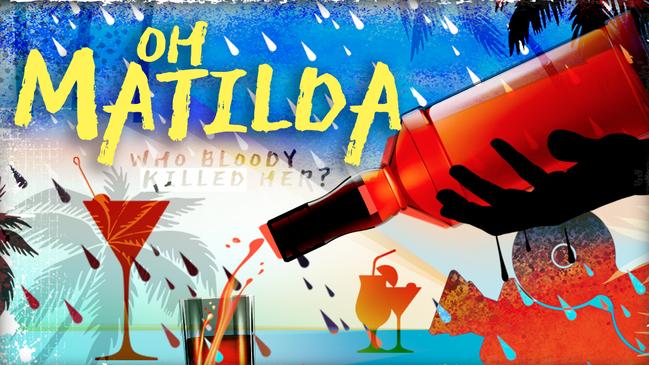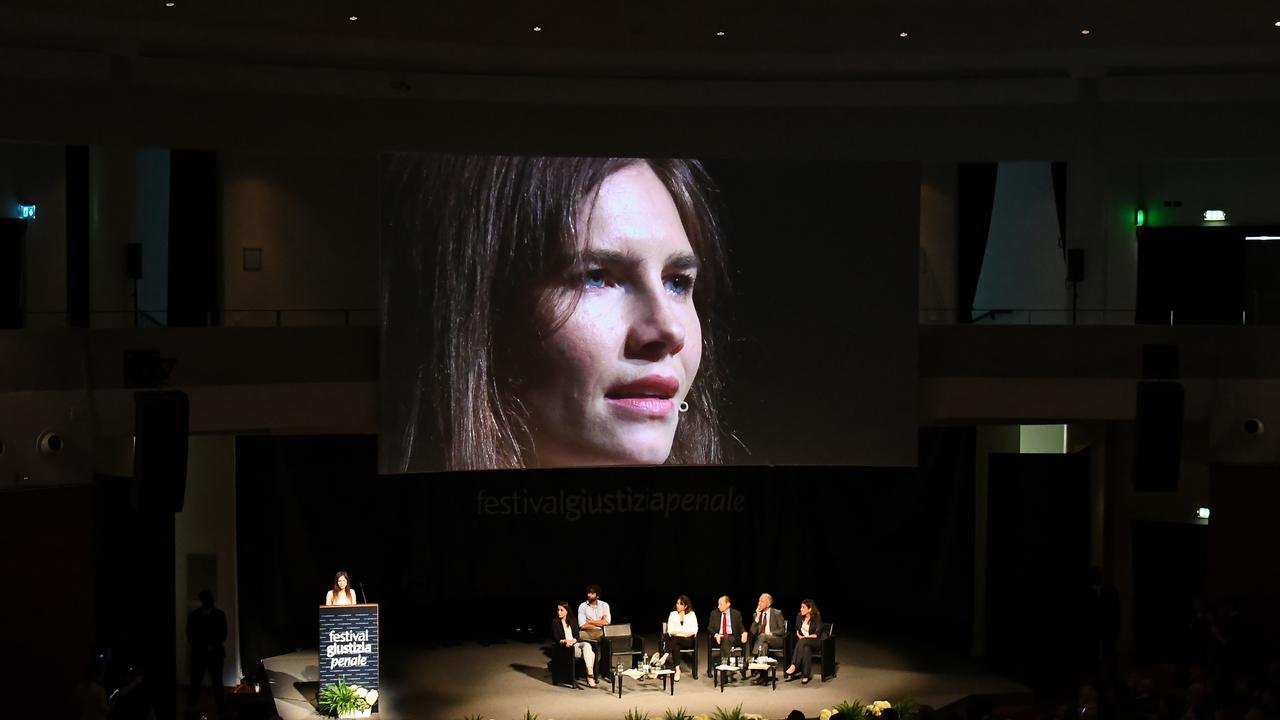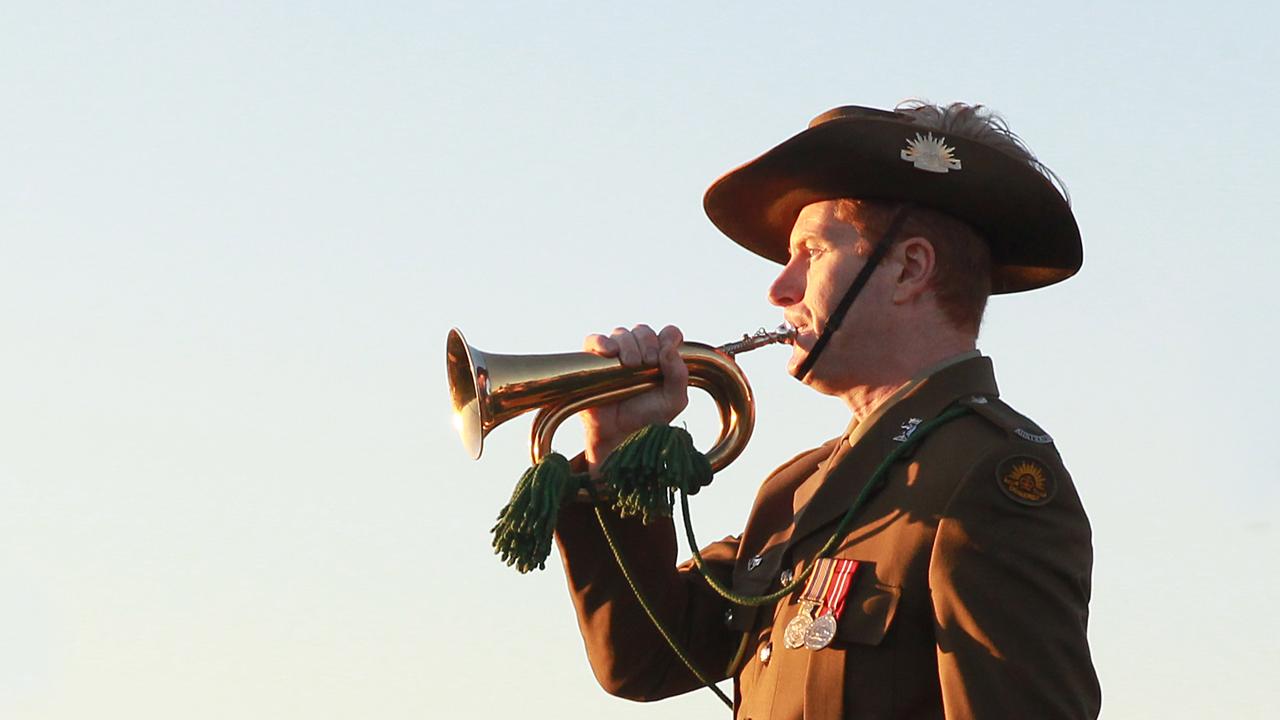Oh Matilda: Who Bloody Killed Her? Chapter 11
What every down-and-dirty reality show needs is some intruders to upset the ecosystem. Journalist Joe Hildebrand is taking over the story – and the island.

This is ‘summer reading’ like nothing you’ve read before: a diverse field of writers collaborating on a novel that will captivate you through summer.
Each author had just three days to write their chapter, with complete freedom over story and style; it’s fast, fun and very funny.
Tune in over the summer to see how the story unfolds.
Today, Joe Hildebrand continues the story with Chapter 11.
McCredden let the collar slip. It was a night of disappointments.
“Yes, you told us last time,” he sighed. “The boobies have landed.”
“Dammit, this is serious,” De Kock growled.
“Oh I know,” McCredden said earnestly. “I’ve always been very passionate about the environment. But shouldn’t we be focusing our attention on the murders?”
De Kock’s pupils scanned the man in front of him like a radar sweep but detected nothing of threat or value. No sign of intelligent life.
He briefly considered punching him in the face, driving the bridge of his nose into his frontal lobe and relieving both McCredden of his existence and the rest of them of his company.
But the calculation was soon resolved in the negative. There would be the hand-wringing gasps to placate, then the tedious semantics that he was just a murderer, not the murderer, and then of course the tiresome process of having to store yet another decomposing corpse. The coolroom wasn’t a Tardis either. On balance it just wasn’t practical.
Still, something clearly had to be done with him, and so De Kock quietly filed the matter into one of the many folders at the back of his mind and also made a mental note to check the exact dimensions of the coolroom next time he was in there.
In the meantime, there was the boat to deal with.
Few things made De Kock’s blood run cold, an awkward expression given he was, by vocation, a cold-blooded killer. Indeed, there was almost no one he couldn’t kill. Peasants, presidents, the captain of the cricket team – no problem. A plane falling out of the sky? Planes go down all the time. Politicians get shot all the time. No problem.
Same with soldiers. Soldiers die. He liked to think of himself as a soldier, even though the people he killed didn’t know they were at war. That was their problem, their foolish naivete. They failed to understand that everything was war. A war for family or tribe or land or money, a war for who controls your future. What was all of life if not a war for survival?
But the people on the boat could not be fought. They could not be killed. Eliminate them and more would simply come. Kill a soldier, they send an army. Strength did not matter. He was a great white shark thrashing against an inevitable net.
By the time De Kock had gathered his thoughts McCredden was already retreating and had slumped backwards into a fake Chesterfield armchair. The rest of the guests stood with their hands moist but still miraculously attached to their drinks. No amount of poison would compromise that.
“They’ve landed,” De Kock said again, this time with the appropriate cadence of menace.
“What on earth are you talking about?” spluttered Champion. “I can’t even access the Wi-Fi for Christ’s sake!”
“That is immaterial,” De Kock replied, carefully retreating into the man he once was. “Storms rise and subside. Systems fail. Survivors survive.”
“That’s a total tautology,” Greer whispered to Zoe, but she was already thinking about her late cattle dog Misty.
In the end it was Mother who spoke most plainly. “It appears there is something you are not telling us Mr De Kock.”
“That is true Mother,” he said. “I am not merely the barman at this establishment. I was employed by Mr Engelbrecht on a matter of great sensitivity and even greater importance. It is my job to ensure the security of this island.”
“Well a fine job you’ve done so far!” McCredden said, oscillating his face expectantly. Nobody laughed.
“Whether you kill each other or not is none of my concern,” De Kock continued. “My only purpose is to prevent any external elements from infiltrating this assembly.”
“Hang on,” Zoe protested, “I thought I was the Covid Marshal?”
De Kock focused on his breathing. Such a weak, weak people.
“So who is coming for us Mr De Kock?” Maya Churchill asked, rearranging her nightgown between fear and optimism.
“Ms Churchill, I have fought many enemies,” he said. “But none are as ruthless and indefatigable as what is to come. They cannot be outrun, they cannot be contained and they cannot be destroyed. This, I am afraid, will be your fight, not mine.”
“So much for the security guy!” said Champion, but this too raised not a titter.
“Don’t worry sir,” De Kock replied when the silence had settled. “They rarely target the director. The rest of you, I’m afraid, are all fair game.”
Champion was deeply relieved. For the past ten minutes he’d been going through a Captain Phillips scenario and doubted he could have survived a kidnapping that wasn’t fully catered, let alone make the necessary colourblind casting choices.
The others stood while McCredden sat, still waiting for anything to stir either outside or in.
Then the storm tapered off for a moment only to make way for a clear and clinical tap.
“It’s them,” De Kock said. “Whatever you do, don’t answer.”
“The doors are glass,” said Mother. “I think they know we’re here.”
“Suit yourself,” said De Kock.
“Jesus man!” Champion finally exploded. “Just tell us what we’re dealing with! Are they pirates? Criminals? Terrorists?”
“It’s far worse than that Mr Champion,” De Kock replied. “Just don’t let them know you’re afraid.”
In his defence, Bradley Champion was not particularly afraid until he realised that everyone in the room expected him to open the door. This hardly seemed fair – where was a runner when you needed one?
And so he puffed up his chest, took three manly steps, and pulled the handle with all the enthusiasm of a euthanasia patient.
Two dark figures stood in the blurring rain, a small one in front and a larger one behind holding a large black weapon.
Champion expelled a great deal of breath and a small part of his bladder.
“You?!?” he said. “Impossible!”
The pair said nothing and Champion staggered backwards into De Kock, who was now liberating a bottle of Johnnie Walker from its contents.
The director attempted to nestle his head into the South African’s shoulder in a way that might somehow seem courageous. “For the love of God do something!” he hissed.
But it was too late. The larger man raised the weapon to his shoulder, unleashing a blinding flash of light, while the smaller figure stepped forward with an outstretched hand.
“Hi!” she beamed. “Becky Cummerbund from Celebrity Central!”
Somewhere at the back of the room McCredden wondered if he’d finally be asked about that dinner party.
For app readers, swipe to the Summer Novel section to find all chapters or click to read Chapter 1, Chapter 2, Chapter 3, Chapter 4 or Chapter 5
Joe Hildebrand is a columnist for News.com.au and The Daily Telegraph and author of An Average Joe: My Horribly Abnormal Life. He is also a broadcaster on Radio 2GB and 4BC and commentator on the Seven Network. He has won some awards and was robbed of others. He believes anyone who doesn’t get a real Christmas tree is destined for Hell.
Twitter: @Joe_Hildebrand




To join the conversation, please log in. Don't have an account? Register
Join the conversation, you are commenting as Logout